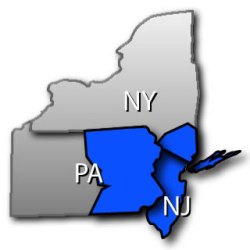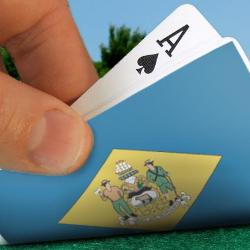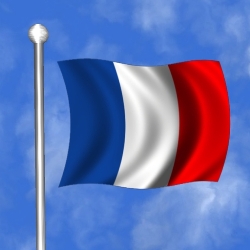Could a NJ/NY/PA iPoker Compact Work?

Playing online poker legally on a regulated site in New Jersey can be frustrating at best as these games are not run constantly, are typically in the low-to-mid stakes range, and tournament guarantees are currently lower than ever before. Yet with online poker legislation at the top of the conversation list in both Pennsylvania and New York, things have the potential to change in the future, and for the better.
There are still a number of pieces that must first fall into place, but if these two states do eventually decide to adopt regulation, then a shared liquidity compact between New Jersey and its neighboring states to its west and north would make complete sense. So, this then begs the question: what might a shared poker network agreed between these three populous states look like?
Similar Size to Spanish Market
Unfortunately, there is no way to predict the average cash liquidity of an iPoker compact between New York, Pennsylvania and New Jersey, but the closest one can get to a guesstimate would be by examining the Spanish market which has a similar number of people at 46.8 million, compared to the 41.5 million located in the three aforementioned states.
The problem with that, though, is that they are two extremely different markets. Spain has a much lower gross domestic product per capita, for instance, as well as a lower internet penetration rate than those states situated in the northeastern region of the United States. Spain’s online poker has a tax rate of 20 percent, too, which is much higher than the 17 percent being predicted for the New York, New Jersey and Pennsylvania markets.
Increased Liquidity
By using the market liquidity in Spain by way of comparison, we can assume that the New York, New Jersey and Pennsylvania would receive a daily average of around 980 cash players, which is really low, all things considered. A better way to look at things, however, is by examining the current level of poker traffic in the state of New Jersey. Reportedly, the New Jersey market has an average of 320 internet poker players over a 7-day period, which tells us that New York, New Jersey and Pennsylvania could expect to receive around 1,500 cash game players in total.
If you multiply the reach of the New Jersey market by 4.5, everything changes, as this will likely result in an increase in table starters, and result in former bystanders subsequently feeling to join games. In other words, a compounding effect happens where more players will feel motivated to play just because there are more options available to them. Taking this into account, perhaps a more accurate prediction for daily traffic numbers may then fall into the 2,100 to 2,250 players range.
Two Main Operators
Lastly, there is a theme that runs through just about every European country where online poker is regulated, namely that one or two major operators tend to dominate the individual markets, and that the market is also unable to support measurable liquidity for more than four iPoker operators at a time. Therefore, it is reasonable to assume that the New York, New Jersey and Pennsylvania markets will turn out in much the same way. Therefore, PokerStars and WSOP/888 are likely to dominate a future shared iPoker market between NY/PA/NJ, with the other operators left to fight over the remaining crumbs. Furthermore, if too many operators do manage to stay in the industry for too long, then the new market might not be able to thrive as well, as could ultimately fracture.
If oversaturation is avoided, however, resulting in increased options for poker players, then it has been estimated that a combined New York, Pennsylvania and New Jersey could generate around $180 million in annual gross gaming revenue, compared to say New Jersey on its own which in 2016 collected a mere $26.5 million, up by $2.7 million compared to the $23.8 million taken for the whole of 2015. While online poker needs high levels of liquidity to survive, the same cannot be said about online casinos and slots, though, and last year New Jersey collected an impressive $170 million in revenues, a figure 36% higher the $125 million generated in 2015. As a result, these state’s individual online casino markets, if regulated, would continue to remain separate.










